
The library in the penal colony: Chekhov’s unsung gift to Sakhalin
Chekhov’s contribution to the cultural landscape of the Sakhalin penal colony (1868-1905), the establishment of several school libraries containing more than 2,200 volumes for the island’s children and their convict parents, has received little attention compared with the acclaim accorded his prodigious 1890 demographic census of prisoners. “I visited every settlement and went into every hut,” he wrote.”I don’t […]
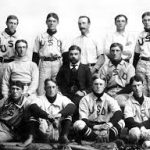
The double-minded revolutionary
In 1884, a Russian woman by the name of Liudmila Volkenshtein was found guilty of anti-tsarist “terrorism” by a military court in St Petersburg. Her crimes were bound up with her membership in an underground group called “The People’s Will” (Narodnaia Volia), an organization that in 1881 had carried out the assassination of Tsar Alexander II. Volkenshtein herself […]
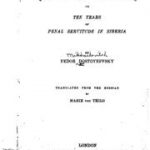
In my prison notebook
Last year I came across a rare archival find: multiple editions of a 19th century prison newspaper covertly produced by Russian inmates between 1890 and 1905. The newspaper editions, now brittle paper manuscripts fraying brown along their edges, were archived along with a note of introduction by the editor-in-chief. The editor describes the way in […]
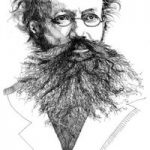
The Great Escape
Peter Kropotkin is remembered today as a brilliant Russian social revolutionary, geographer, scientist, and anarchist writer.Less well known, however, is the name of the friend and co-conspirator who significantly prolonged Kropotkin’s life by engineering his remarkable prison break in 1876. Dr. Orest Edward Veimar, a St. Petersburg surgeon, was the chief architect of Kropotkin’s […]

The Carceral Archipelago Conference, Leicester 13-16 September 2015
The Carceral Archipelago conference, held in Leicester from 13 to 16 September 2015, felt just like reading over thirty outstanding monographs in two-and-a-half days, getting to know their authors personally, and having the chance to reflect collectively about their mutual entanglements. It was an intense marathon through the burgeoning field of the global history of […]
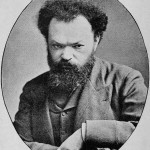
Sounds in the silence of political exile
My recent discovery of Alexander Sochaczewski’s painting, Farewell to Europe!, in the Museum Pawilon-X in Warsaw compelled me to think anew about the experience of political exile and about the innate “wordlessness” that the state intended it to symbolize. Although Sochaczewski never sold a single painting during his life, today his work is viewed by thousands of visitors who […]
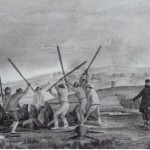
“Convicts, Indigenous People and Labour”
A few weeks ago the Carceral Archipelago team of postgraduates presented at the University of Leicester’s annual postgraduate conference. The theme of the Carceral Archipelago panel was “Convicts, Indigenous People and Labour”. The project’s three postgraduate students – Kellie Moss, Katy Roscoe and Carrie Crockett – presented three papers that ranged from Western Australia to […]
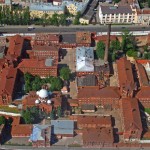
Reflections on the world’s largest prison
Several days ago, I broke from reading through the notes of nineteenth-century Russian penal inspectors to admire the 23rd edition of the International Prison News Digest, a publication of the Institute for Criminal Policy Research. As I perused this amazing compendium, I was struck anew by the way in which certain facets of the prison […]
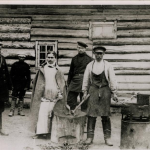
The Carceral Archipelago panel at the Fourth European Congress on World and Global History, 4-7 September, 2014
During the first week of September, members of our European Research Council funded project, Carceral Archipelago, attended the Fourth European Congress on World and Global History, held in Paris at the École Normale Supérieure. While at the Congress, a number of the project’s researchers had the exhilarating opportunity of presenting aspects of their research on a shared […]

Recent Comments